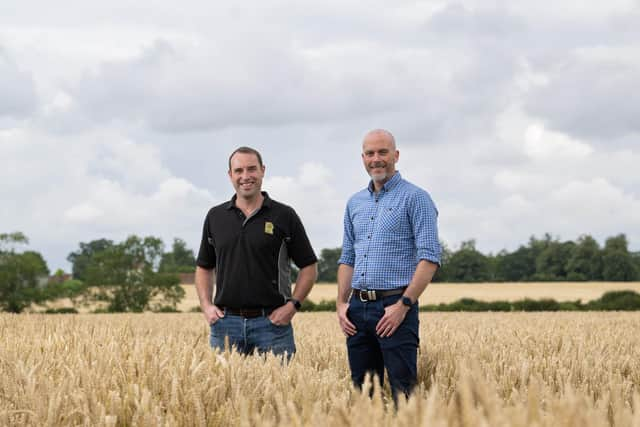How cocoa shells used to make KitKats in Yorkshire are being trialled to create low carbon fertiliser
This two-year trial is designed to evaluate the fertiliser’s performance on crop production, soil health and greenhouse gas emissions reduction.
If successful, up to 7,000 tonnes of low carbon fertiliser could be produced and offered to farmers in Nestlé’s UK wheat supply chain. This amount of fertiliser equates to around 25 per cent of Nestlé UK’s total fertiliser use for wheat.
Advertisement
Hide AdAdvertisement
Hide AdThe production and use of conventional fertiliser accounts for approximately five per cent of global greenhouse gas emissions, and more than half of the carbon footprint of wheat grown in the UK is related to fertiliser use.


Nestle said that recycling valuable nutrients from waste streams within the food system provided a ‘promising opportunity’ to create a lower emissions supply chain. Scaling up low carbon fertiliser production in the UK can provide farmers with a more sustainable product at a reliable price, it said.
The cocoa shells are supplied by Cargill, which processes the cocoa in York to become key ingredients in products like KitKat and Aero. A trial volume of cocoa shell has been processed and pelletised by Swindon-based CCm Technologies.
The trials, which were designed and are being overseen by York-based Fera Science, are currently taking place on arable farms in Suffolk and Northamptonshire.
Advertisement
Hide AdAdvertisement
Hide AdThey are designed to investigate the performance of the fertiliser in terms of wheat yield and quality. They will also assess the impacts on soil biodiversity and greenhouse gas emissions in comparison to conventional products applied on the same farms.
The project is an example of the methods that Nestlé is investigating to help achieve net zero emissions by 2050. Nestlé has also committed to sourcing 50 per cent of its key ingredients from regenerative agricultural methods by 2030.
“Farmers often find themselves to be among the first groups to be exposed to global issues, and these risks are then borne by the food system we all depend upon. We have to find ways to build more resilience into the system and optimising our use of natural resources is a critical part of this,” said Matt Ryan, regeneration lead at Nestle UK & Ireland.
“This project is a small, but very meaningful step towards a net zero future, where farmers, local enterprises, and nature all stand to benefit.”
Advertisement
Hide AdAdvertisement
Hide AdSam Thompson, global engineering lead at Cargill Cocoa & Chocolate, said: “Cargill and Nestlé have been working together for more than 60 years building resilient supply chains across communities where we both operate. We are excited to continue to build on this strong partnership through our innovative cocoa shell fertiliser trial.
“Together, we hope to contribute to a more sustainable future for the British farming industry.
Nestlé’s focus on regenerative agriculture is underpinned by its work with the Landscape Enterprise Networks (LENs). LENs is an independent trading community which connects businesses with a common interest to protect and restore the environment in which they operate.
Regenerative agriculture is also a key element of Nestlé’s Cocoa Plan, as it works closely with farmers in countries like Côte d'Ivoire and Ghana to create a more sustainable supply chain for cocoa.